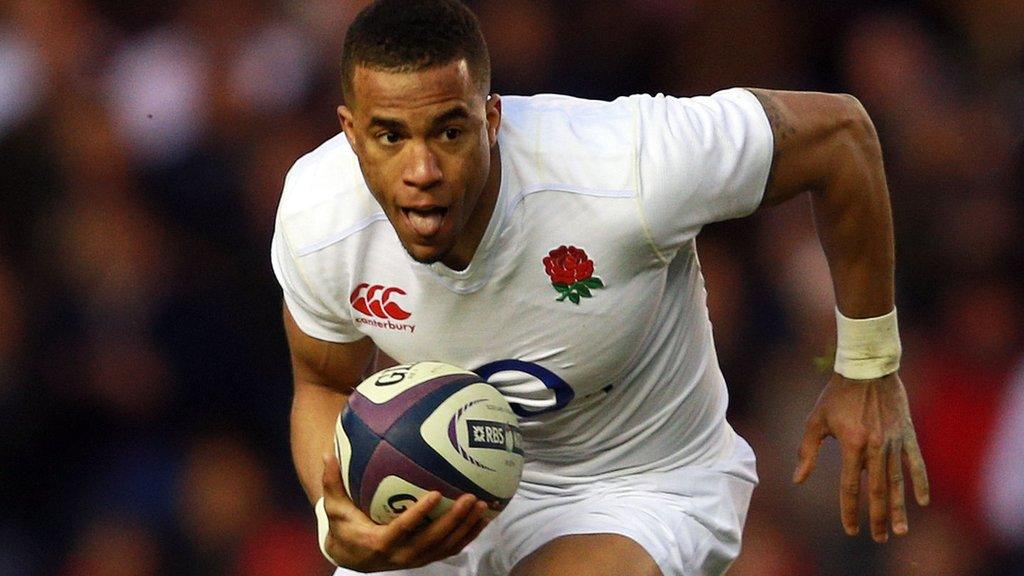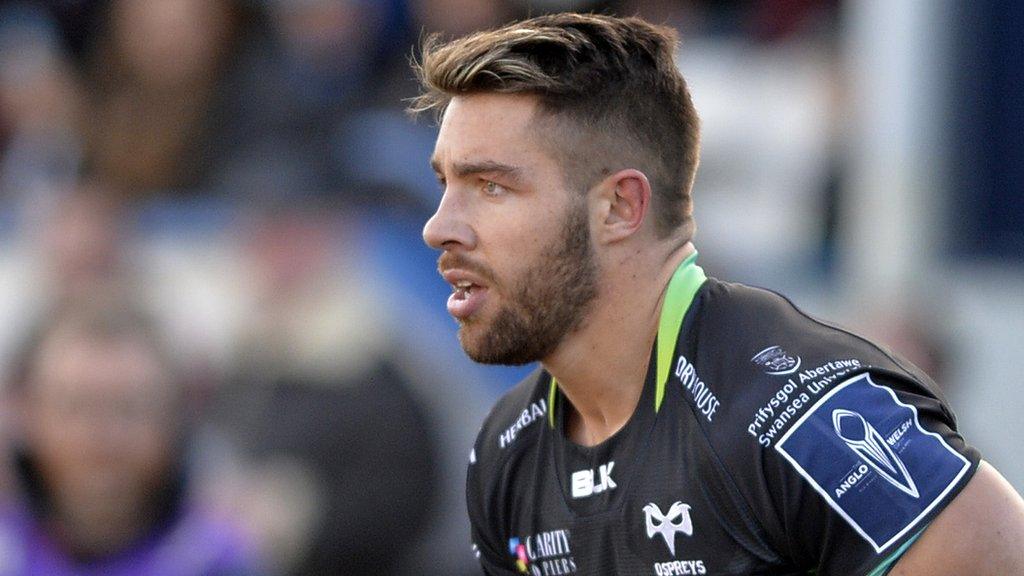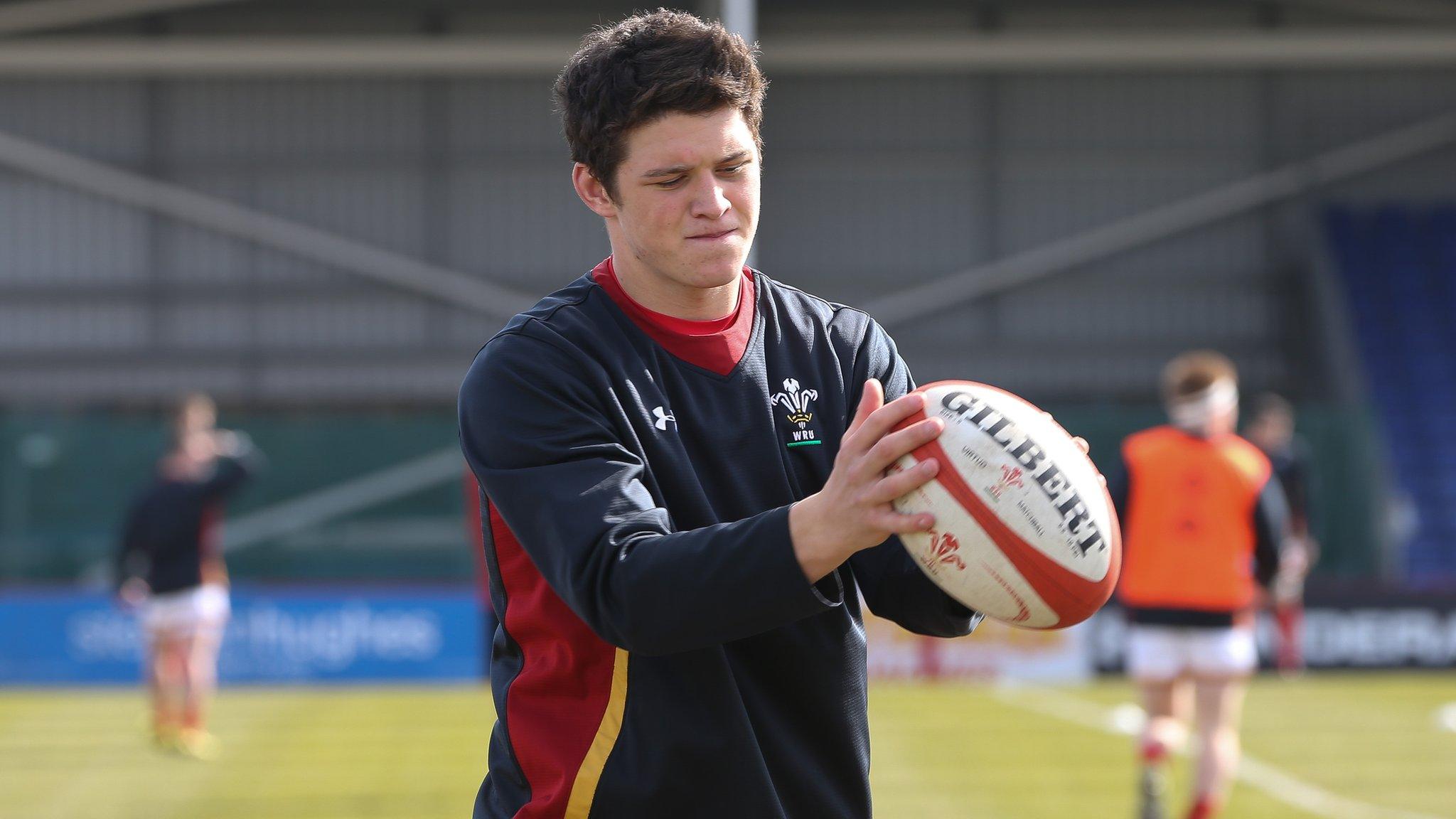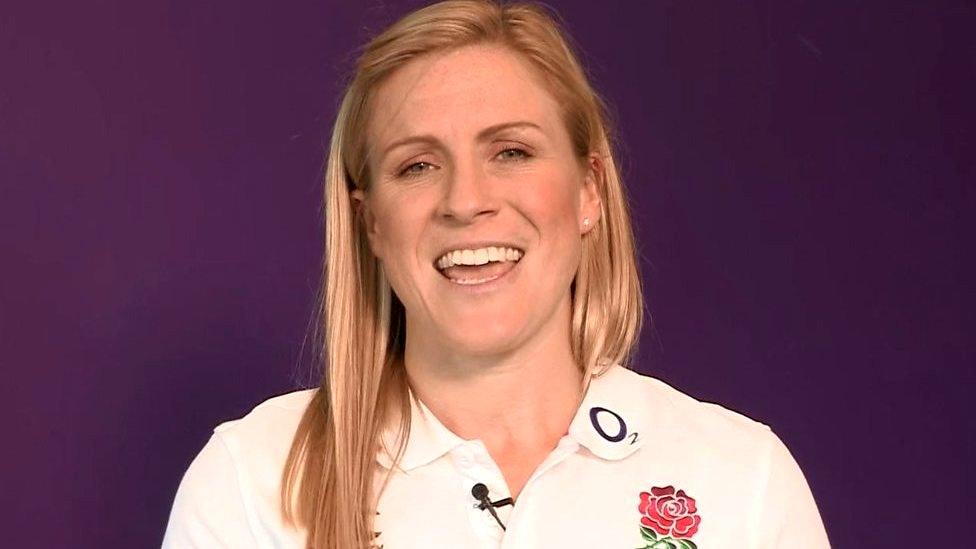Six Nations 2017: Rob Howley on his 'Kiwi' attitude and 'double rhino skin'
- Published
Six Nations: Italy v Wales |
|---|
Date: Sunday, 5 February Venue: Stadio Olimpico, Rome Kick-off: 14:00 GMT |
Coverage: Live on S4C, BBC Radio Wales, BBC Radio Cymru & BBC Sport website and BBC Sport app, plus live text commentary |
It is often said that if you enjoy your job, you will never do a day's work in your life, but if your every action is scrutinised and critiqued by millions, enjoyment can soon turn to misery and misery to paranoia.
It is something Rob Howley is keenly aware of.
Rugby in Wales is public property and when you're in charge of the national side you have to withstand the brickbats as readily as you accept the plaudits.
With the 2017 Six Nations kicking off next weekend - Wales face Italy in Rome on Sunday - the head coach is steeling himself for another emotional rollercoaster.

Rob Howley is a former Wales and Lions scrum-half who also led his country
He presided over Wales's most successful autumn for 14 years, yet faced a barrage of criticism and abuse from supporters and the press. He's learned, in his words, to cultivate a "double rhino skin".
"I've learned a lot in the last nine years under the guidance and tutelage of Warren Gatland. There's a bit of Kiwi in me somewhere. You have to be tough," Howley says.
"The hardest part of the role is probably the influence it has on your family, and your children in particular. I try to stay away from social media. I'm not on it.
"Ultimately we like to think that we can make our own more informed decisions with the information that we have."
Dealing with social media
The rise of social media has led to a more abrasive, pernicious form of public discourse. From the bunker of a social media account, criticism becomes more stinging, pronouncements more vitriolic and while Howley gives it a wide berth, he's witnessed the effect of its darker side on his charges.
"I'm not going to mention the players' names, but it certainly has affected players who played for Wales over the last four to five years and it's not nice, is it?" he continues.
"It's very critical and when you see statements in black and white, it hurts."
Six Nations 2017: Tom Shanklin and David Flatman's guide to the tournament
Human nature dictates that one negative comment will resonate longer and louder than 10 positive ones, but Howley accepts that you have to take the rough with the smooth.
"If you are going to go on Twitter and Facebook when you're playing well, you have to be able to take it when you're not playing well," he adds.
"That's a decision and it's about making better decisions by the players because ultimately [social media criticism] has an influence when you don't pay well, particularly in a country like Wales."
That is the crux of it. Gareth Edwards once marvelled at the fact David Duckham, an England contemporary during Wales' 1970s golden era, could walk down an English high street unrecognised - a rugby superstar, but a relative stranger in his own land.
Welsh players have never had that luxury. A winning try can turn you into a national hero. A missed tackle can turn you into a pariah.
And in a culture where mobile phones are ubiquitous, where lives are lived through our screens, confidence can be shattered, and careers destroyed.
Damned if you do...
Six Nations 2017: Nigel Owens to guide Wales over high tackles
Modern rugby is no place for sensitive souls - neither on the pitch nor off - but what it does show is that people care. Whether they express themselves politely or not, they are moved to comment because Wales is their team and the team is the embodiment of their national pride.
The criticism aimed at Howley's players during the autumn was that they lacked enterprise, urgency and creativity, that they were humbled by Australia and pushed to the verge of humiliation by Japan.
Victories over Argentina and a neutered Springbok side offered scant consolation to a rugby public with soaring expectations.
While Howley accepts that Wales have some distance to travel to match the level of performance produced by England and Ireland during the same period, he maintains that winning ugly still trumps losing valiantly.
"I can see that and I can also see the other side of the coin where we've come up short and we've lost those games and then we've been criticised for not winning those games. So sometimes you're damned if you do and damned if you don't," he says.
'We'll back ourselves'

Howley with his new captain Alun Wyn Jones
The Six Nations, he argues, is a different tournament with a different set of pressures, and the fact that people are already talking about Ireland v England as a Grand Slam decider does not bother him in the slightest.
"We'll come in under the radar and back ourselves. We've got a captain who backs himself and I know all of our players will follow," he adds.
"He [Wales skipper Alun Wyn Jones] has high expectations, and the supporters do, as do we as coaches.
"And sometimes there are 15 players trying to stop you, and ultimately, sometimes they do."
That is sport in a nutshell. No one has a divine right to win. But do not tell Howley and his players they are not trying.
Unless you are willing to say it to their face.
Wales in the 2017 Six Nations |
|---|
Sunday, 5 February, 14:00 GMT, Stadio Olimpico: Italy v Wales |
Saturday, 11 February, 16:50 GMT, Principality Stadium: Wales v England |
Saturday, 25 February, 14:25 GMT, Murrayfield: Scotland v Wales |
Friday, 10 March, 20:05 GMT, Principality Stadium: Wales v Ireland |
Saturday, 18 March, 14:45 GMT, Stade de France: France v Wales |
- Published29 January 2017

- Published28 January 2017

- Published28 January 2017

- Published30 January 2017
